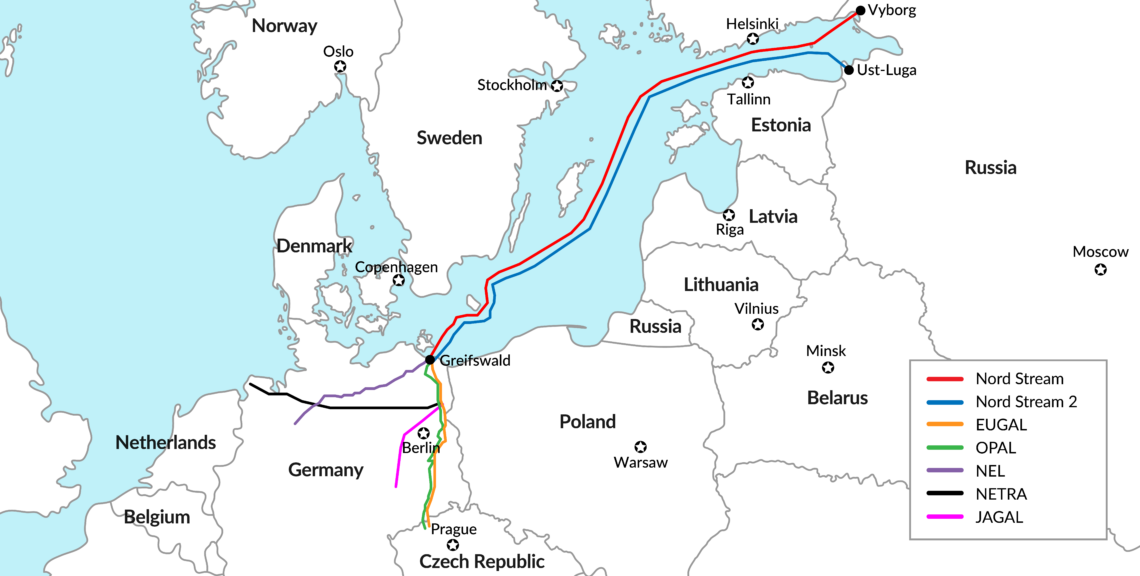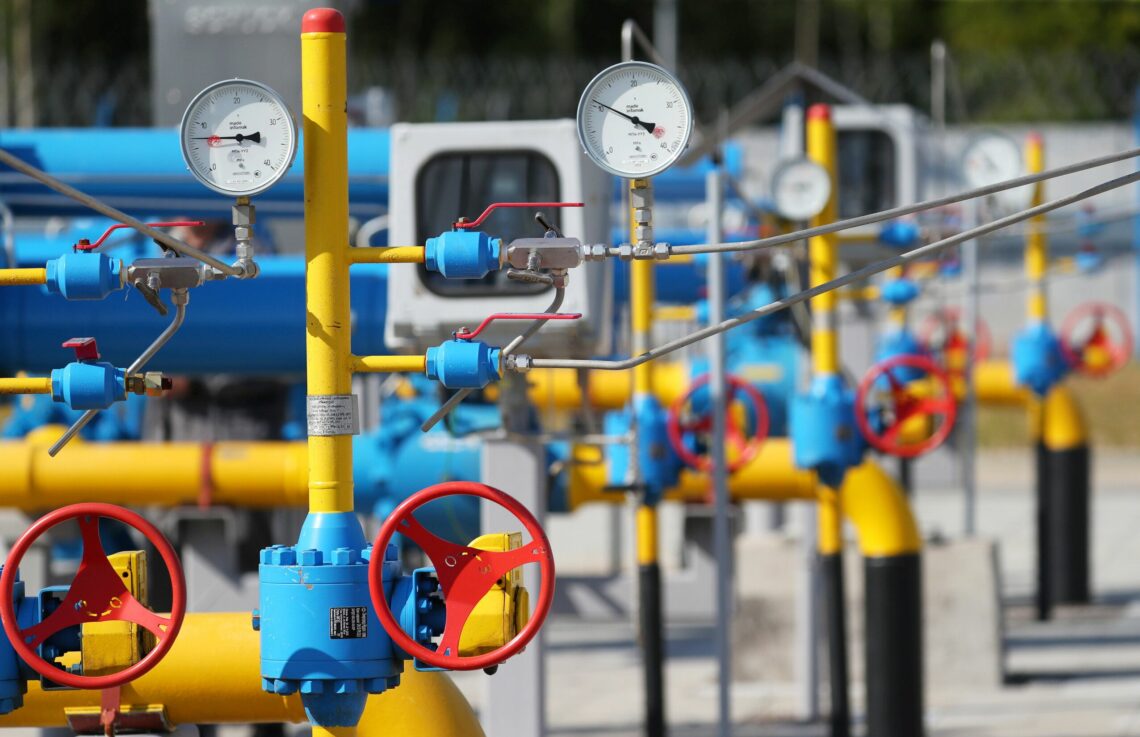Nord Stream 2: No strategic gains for the United States
By removing the sanctions that were delaying the progress of the Nord Stream 2 pipeline, the Biden administration was hoping to foster closer cooperation with Berlin. However, the decision could soon have negative repercussions on energy security for the entire continent.

In a nutshell
- The U.S. lifted sanctions against Nord Stream 2
- The policy shift was criticized by many
- Energy security in Europe will suffer
The Biden administration recently removed the objections and sanctions that had so far delayed the completion of the Nord Stream 2 pipeline between Russia and Germany. The decision reflects Washington’s intention to disengage from Europe. It also strongly suggests that the White House intends to return to policies similar to that of former President Barack Obama – improving relations with Russia and relying on European leaders, particularly in Berlin, Paris and Brussels, to manage the European side of transatlantic affairs.
Reversal of fortune
The Trump administration sided with several European governments in arguing that the completion of Nord Stream 2 would undermine Europe’s energy security, by giving Russian President Vladimir Putin more leverage. President Donald Trump targeted companies with sanctions, seeking to delay or forestall the completion of the pipeline.
It is widely believed that the shift in U.S. policy was intended to serve a dual purpose.
Then, newly elected President Joe Biden directed that the U.S. suspend sanctions. The administration initially contended that the measures were meaningless given that the pipeline was almost completed. That assertion was wildly disingenuous. A pipeline that is not fully completed is effectively useless.
Subsequently, the U.S. announced a joint agreement on several measures to address concerns over completion of the pipeline, including green energy investments in Ukraine. These efforts were widely derided as political expedients that could not possibly mitigate future Russian aggression or the project’s negative impact on competing for Central European energy initiatives.
Biden’s objectives
It is widely believed that the shift in U.S. policy was intended to serve a dual purpose. Its primary goal was improving relations with Berlin, which had noticeably deteriorated under the Trump administration. The move was consistent with other initiatives taken by the Biden administration as well, including reversing President Trump’s decision to remove some U.S. troops from Germany. President Biden timed the policy shift to follow an extensive European trip where he emphasized that “America is back” and “engaged,” words meant to contrast with his predecessor’s mantra of “America First.”
The Biden team expected that constructive rhetoric and support for Nord Stream 2, a policy priority for German Chancellor Angela Merkel, would spur transatlantic cooperation – particularly on developing joint policies toward China. The administration also hoped the decision would create more favorable conditions for constructive dialogue with Moscow. For the same reason, Washington refrained from criticizing recent cyberattacks on the U.S. and Europe, and human rights abuses in Russia.

Consequences
Other than reaping the goodwill of the outgoing German chancellor, there are few signs the administration’s approach achieved any strategic gains. In particular, the president’s abrupt shift in policy disconcerted many European governments, especially after declarations that he intended to consult more with European allies. The decision was announced without warning, and with virtually no discussion outside of Berlin.
Of particular note is that both Poland and Ukraine, two governments anxious to show their intent to get along with and work with the Biden administration, demonstrably protested against the decision, even knowing it was a done deal and that their criticism would earn the ire of the White House.
Several European governments have taken the decision as further proof that Washington was primarily shifting its focus exclusively to Berlin, Paris, and Brussels. They also believe Washington is now less interested in confrontation with Moscow.
European gas storage is at a 10-year low, and winter is coming.
The move also reinforces the impression that the Biden administration is returning to the policies of the Obama administration: a modicum of support for NATO; elevating the importance of the European Union; cooperative policies on energy and climate change; and mitigating competition with Russia. These policies move the U.S. toward a smaller and less influential footprint in Europe.
President Biden’s decision has left Central and Southern European nations scrambling. Most had built their policies around the assumption of stronger bilateral cooperation and engagement with the U.S. Now they expect much less.
Overall, there is scant evidence the U.S. has been able to improve joint cooperation with Europe. Meanwhile, Russian President Putin has made more aggressive statements since the announcement of the Nord Stream 2 decision, knowing that he is in a much stronger position than he was just a few months ago. European gas storage is at a 10-year low, and winter is coming.
Scenarios
Despite criticism and shortfalls, it is extremely unlikely that the U.S. will reverse course. There is no sufficient bipartisan support in Congress to pressure the administration. It is also extremely improbable that Washington will pressure the soon-to-be-elected German government for stronger guarantees to address concerns over the potential for Russian energy blackmail.
The U.S. could help improve European energy security by increasing support for the Three Seas Initiative, the Southern Gas Corridor (SGC), new interconnector pipelines for the SGC, and the Trans-Caspian Gas Pipeline – which would finally deliver Turkmen and Uzbek gas to Europe. None of these initiatives, however, seem likely. Rather, the administration will be reluctant to support programs outside “green energy” initiatives.
The most likely scenario is that the U.S. will find its disengagement strategy unsustainable over the long term. The White House will be forced to respond to Russian meddling and will find itself increasingly concerned about China’s encroachment in Europe. EU security initiatives will fail to address basic security concerns. The administration will address these challenges ad hoc rather than reformulating the overall strategy.
President Putin will grow bolder on the energy front. He is not hiding his intent to do so; in fact, he has been openly stating his intentions regarding Ukraine and other central European nations. In the near term, Nord Stream 2 will undermine Europe’s green transition and the continent will likely cap out at 20 percent renewable energy. As a result, not only will European economies be less competitive, but in the near term, energy security will decline.



